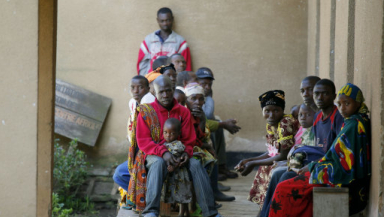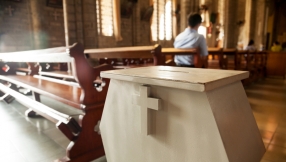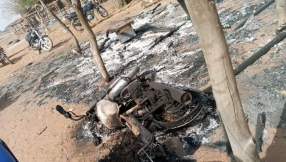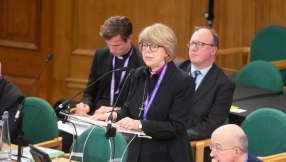
Despite attempts by the United Nations to resolve the long-running conflict between the Democratic Republic of Congo and the M23 rebel group, citizens are still fleeing from their homes in fear.
Chantal Daniels, Great Lakes policy advisor for Christian Aid, has just returned from a three-week humanitarian mission and is concerned about unrest in the Goma area.
The M23 military rebel group has been fighting the forces of the DRC government for two decades.
In recent years, the UN and government forces have developed a peacekeeping operation in attempt to stop the fighting but it has had little success.
Daniels explained: "Since April escalations in fighting between the M23 and the National Army has been visible. The peace forces were established to look into a solution between the M23 and the National Government but no solution or no agreement was reached so far."
Daniels was in the DRC to support advocacy training and help those suffering as a result of the conflict. Now that she is back in the UK, she is raising awareness of the situation there and the waning hope for a lasting peace.
"On the mission, we were in communities with families of people that have been misplaced- some three or four times even. Many people do not have very high expectations at this moment. There is still a massive fear."
Daniels was in Goma when fighting between the M23 military group and the armed forces broke out again.
The conflict has also spread to neighbouring Rwanda, which has been accused of supporting the rebels. The latest round of fighting has heightened tensions between the two countries.
"When I arrived everyone knew that fighting between the National Army and the M23 was on-going but out of the blue on the Thursday afternoon the shelling of Goma happened - that was a shock. On the Saturday there was yet another shelling which caused more and more demonstrations. The fear among the population caused a lot of unrest in and around Goma," says Daniels.
After years of fighting, residents are "aware of the situation and want a change".
The people are angry about the perceived lack of protection and have been demonstrating against the UN and against their own Government, with cars being trashed and UN staff being threatened.
Daniels continued: "A lot of the residents are used to the unrest. On the other hand, it's enough of having promises made by the UN of protecting them, when the UN is not able to live up to their expectations.
"It's just a cycle of unrest that repeats itself but it's now reached a point that the people have had enough of it and they just want to have a solution."
Daniels is encouraging people in the UK to be informed about the situation in the DRC and ask questions to their MPs and to their local representatives as to how the UK can help.
As for the DRC, Daniels thinks that the government there will need to take responsibility and follow through on its promises before the country is stable and finally at peace.
She said: "I think that the key issue is that the DRC Government needs to start taking their responsibilities. So far they have been finding peace agreements and breaking the same peace agreements over and over again. I think that peace agreements are a very important step and a window of opportunity, but their commitments need to be to implement this and commit to what they promise.
"This population has been moving in fear over the last couple of years. They need to be able to trust their Government to build up something that is more sustainable and longer term without fear of being misplaced again."













